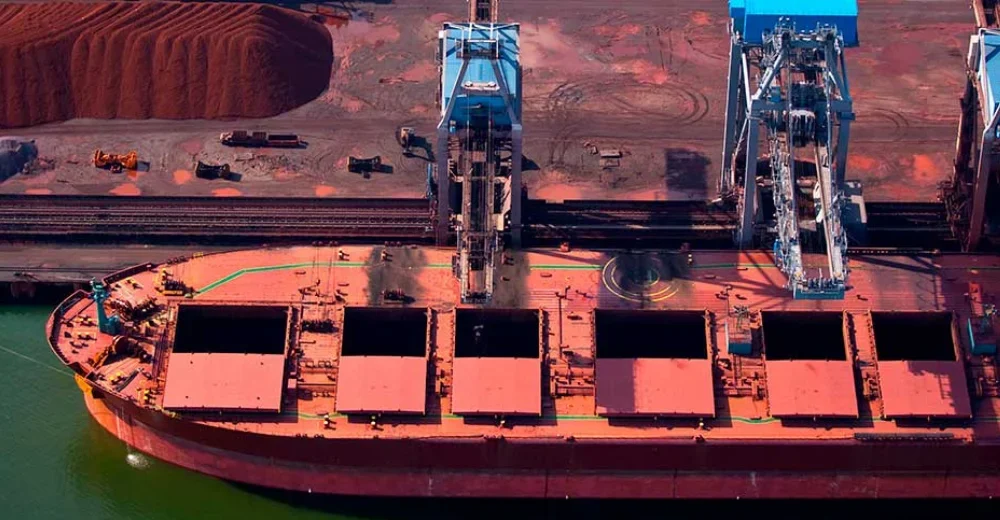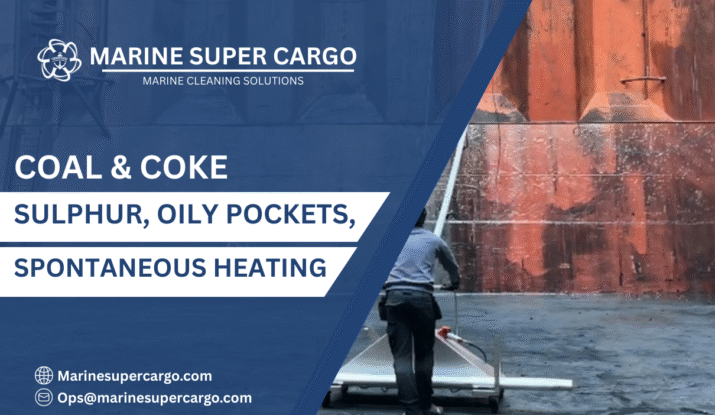Coal and Coke Sulphur Oily Pockets present critical challenges for bulk carrier operations worldwide. These hazardous cargo residues demand immediate professional intervention to prevent vessel damage and ensure crew safety. Understanding the complex nature of Coal and Coke Sulphur Oily Pockets is essential for maintaining operational efficiency and regulatory compliance.
Bulk carriers transporting coal and coke face unique contamination risks that extend far beyond simple dust removal. Coal and Coke Sulphur Oily Pockets create dangerous conditions that can compromise vessel integrity and pose serious safety hazards. The combination of sulphur compounds, hydrocarbon deposits, and thermal instability requires specialized cleaning protocols.
Understanding Coal & Coke Contamination Patterns
Coal and Coke Sulphur Oily Pockets Spontaneous Heating manifest differently across cargo hold sections. Port and starboard holds often display varying contamination levels due to loading patterns and vessel movements during transport. Forward holds accumulate moisture-enhanced sulphur compounds, while aft sections may experience concentrated oily pocket formations.
The dusty nature of coal combines with inherent sulphur content to create corrosive deposits on bulkheads and tank tops. Coal and Coke Sulphur Oily Pockets Spontaneous Heating residues penetrate deep into cargo hold structures, requiring thorough removal to prevent long-term damage. Oily pockets form when volatile compounds condense in cooler areas of the vessel.
Spontaneous heating risks increase when residues remain in confined spaces. Temperature monitoring becomes critical during cleaning operations to prevent thermal incidents. Professional cleaning teams must address these hazards systematically to ensure vessel safety.

MARPOL and IMO Regulatory Framework
The International Maritime Organization (IMO) establishes comprehensive guidelines for handling hazardous cargo residues. MARPOL Annex V specifically addresses waste management protocols for Coal and Coke Sulphur Oily Pockets Spontaneous Heating cleaning operations.
All cleaning residues containing sulphur compounds require proper containment and certified disposal facilities. The IMO mandates detailed documentation of cleaning procedures and waste handling protocols. SOLAS regulations establish safety standards for personnel working with hazardous residues.
Professional Cleaning Solutions by Marine Super Cargo
Marine Super Cargo delivers specialized solutions for Coal and Coke Sulphur Oily Pockets Spontaneous Heating challenges. Our experienced teams utilize advanced equipment and proven methodologies to address complex contamination scenarios safely and efficiently.
Our comprehensive approach begins with thorough assessment of all cargo spaces. We employ gas monitoring systems to detect hazardous vapors and thermal imaging to identify potential heating zones. Marine Super Cargo maintains strict adherence to international safety standards throughout all operations.
Technical Challenges and Solutions
Bulk carriers face multiple hazards when dealing with Coal and Coke Sulphur Oily Pockets Spontaneous Heating residues. Sulphur compounds create corrosive environments that accelerate steel deterioration. Oily pockets present fire hazards and environmental contamination risks. Spontaneous heating can lead to cargo hold fires and structural damage.
Professional cleaning services address these challenges through systematic risk assessment and specialized equipment deployment. High-pressure water systems remove oily deposits while chemical neutralization addresses sulphur compounds. Continuous monitoring prevents spontaneous heating incidents during cleaning operations.
Prevention and Risk Management
Preventing Coal and Coke Sulphur Oily Pockets Spontaneous Heating complications begins with proper pre-loading preparation. Hold cleaning and inspection ensure optimal conditions for cargo transport. Regular monitoring during voyage helps identify developing problems before they become critical.
Crew training plays a vital role in managing coal and coke cargoes safely. Marine Super Cargo provides comprehensive training programs designed to enhance crew capabilities in handling hazardous cargoes.
Environmental and Safety Considerations
Maritime industry standards for Coal and Coke Sulphur Oily Pockets Spontaneous Heating continue evolving with technological advances. Modern bulk carriers incorporate improved monitoring systems and enhanced safety equipment.
Cleaning protocols must balance environmental protection with operational requirements. MARPOL compliance requires detailed waste tracking and disposal documentation.
Frequently Asked Questions
Q1: How quickly can spontaneous heating develop in coal residues?
A: Spontaneous heating can begin within hours under favorable conditions. Temperature monitoring and immediate residue removal are essential preventive measures.
Q2: What safety equipment is required for sulphur compound exposure?
A: Personnel must wear respiratory protection, chemical-resistant suits, and gas monitoring equipment. Continuous ventilation and emergency evacuation procedures are mandatory.
Q3: How do oily pockets affect cargo hold cleaning procedures?
A: Oily pockets require specialized degreasing agents and high-pressure cleaning systems. Fire prevention measures must be maintained throughout the cleaning process.
Q4: What MARPOL requirements apply to coal cleaning waste disposal?
A: All contaminated cleaning residues must be collected and disposed of at certified facilities with proper documentation maintained according to Annex V requirements.
Q5: Can coal residues cause permanent damage to vessel structures?
A: Yes, sulphur compounds and oily deposits can cause significant corrosion and structural damage if not promptly and properly removed using appropriate techniques.
For professional bulk carrier hold cleaning services specializing in hazardous cargo residues, contact Marine Super Cargo today. Our expert teams ensure safe, compliant operations while protecting your vessel investment.


